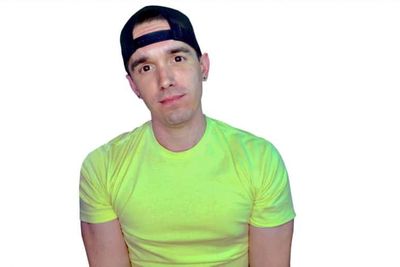Several years back in West Tennessee, during a holiday break, I was all over my small hometown’s backroads, driving around in my new all-blacked-out sports car, desperately trying to score at least a dime bag of weed and a shiny new glass pipe. It was almost impossible to find anything during Christmas.
Sure, it was illegal. Sure, it is probably terrible sounding that I had to get a fix while home for the holidays. But it wasn’t for me—honestly.
One of my family members is living with Multiple Sclerosis and they wanted to try marijuana to help them manage their pain during their flare ups. They were in pain and miserable, and doing an old-school, back-alley drug deal was the only way that I knew how to help. I got lucky. I didn’t get caught. And the stuff wasn’t that bad.
After arriving back home, I spent the next 45 minutes huddled in the bathroom trying to train my family member on exactly the right mixture of flame, inhaling, and not letting the flame from the lighter burn the fingers grasping the glass pipe.
After taking 5 to 6 example hits—trying to demonstrate proper technique for my family member—I accidentally got high as ever.
Since that night, I think I’ve had a hit of weed, probably only once. I don’t really like the feeling I get from the experience. I’m not judging, weed just isn’t for me.
But, it did seem to help, even temporarily (praise due), my family member’s chronic illness. And that helped shape my understanding of the benefits of medicinal marijuana.
Tennessee remains one of the 14 states in the U.S. where marijuana is not only illegal, it’s still criminalized. And although there are a couple marijuana laws making their rounds through the state legislature, Governor Bill Lee adamantly opposes its legalization and decriminalization.
The science is still spotty and lacking on the actual benefits of marijuana medically. But advocates point to weed being the lesser of two risks when compared to the usage of opioids for pain reduction. (The CDC reported in fall 2018 that 50 million Americans suffer from chronic pain.)
I’m a big believer in always talking to those individuals that the laws will affect most and listening to their concerns. Since I am not a recreational user, nor do I use it medically, I have to be aware of the cases being made by those that use it.
And one of those people is the family member whom I taught to smoke marijuana two years ago. They said it helped them relax and rest, reduced anxiety, and lessened pain. They understood the required responsibility of using it, and their responsible usage contributed to better management of their condition.
Marijuana can be a polarizing subject. But if it has the chance to potentially help people manage pain or anxiety, shouldn’t we be at least open to research and test pilots? CBD, a compound found in the hemp plant, is already legal in Tennessee for medical purposes. What about THC—the compound associated with “getting high”? Will THC products ever be legal?
For those of us who are progressive and support of at least some marijuana legalization—what will be next?
Click here for more by Josh Robbins! Josh Robbins is an award winning sexual health advocate, author of the site imstilljosh.com and spokesperson for DatingPositives.com. He was nominated for a GLAAD media award in 2017 and recently won the National Lesbian and Gay Journalist Association’s Excellence Award in the blogging category.
